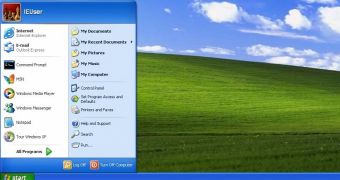Airport security has been significantly improved in the last decade, but all these efforts are not enough to make sure that passengers and staff are perfectly secure when traveling by plane.
That’s what security expert Billy Rios, currently working as director of vulnerability research and threat intelligence at Qualys, has said at the BlackHat security conference, explaining that some of the hardware that airport staff is using right now could be easily hijacked by cybercriminals.
According to Tom’s Guide, Rios explains that computers operated by the Transportation Security Administration (TSA) are connected to a closed network called TSANET, but there still are a number of problems that need to be solved.
For example, airport security employees are using a scanner called Rapidscan 522B to check carry-on luggage, but what’s more shocking is that this hardware has until recently been running Windows 98. The security expert has pointed out that airport administration decided to upgrade all devices to a newer Windows version, but their choice was Windows XP, which no longer receives updates and security fixes since April.
Microsoft itself is warning that staying on Windows XP is a very risky decision, but you would expect organizations and authorities across the world to deal with this issue faster than consumers where a potential data loss would be less critical.
“While it's true that you can keep using your PC with Windows XP after support ends, we don’t recommend it. For starters, it’ll become five times more vulnerable to security risks and viruses, which means you could get hacked and have your personal information stolen,” Microsoft explained.
“Also, companies that make devices like digital cameras, Internet-ready TVs, and printers won’t provide drivers that work with Windows XP, so if you get new devices, they won’t work with your current PC. And over time, the security and performance of your PC will just continue to degrade so things will only get worse.”
And still, statistics show that Windows XP is still installed on 28 percent of the desktop computers worldwide, which does nothing more than to emphasize that users aren’t yet ready to abandon this old operating system, despite the obvious security risk.
Microsoft says that the transition to Windows 8 is the best way to remain secure, but this would also involve hardware upgrades, which in most cases, for both consumers and enterprises, would make the entire process a lot more expensive than initially estimated.

 14 DAY TRIAL //
14 DAY TRIAL //